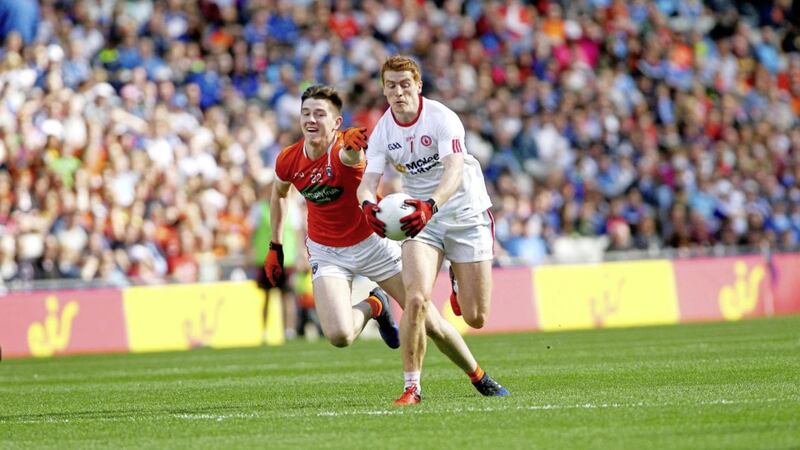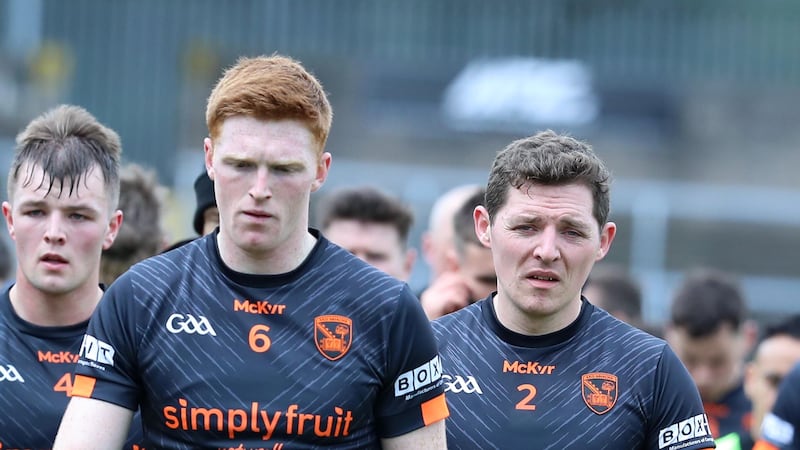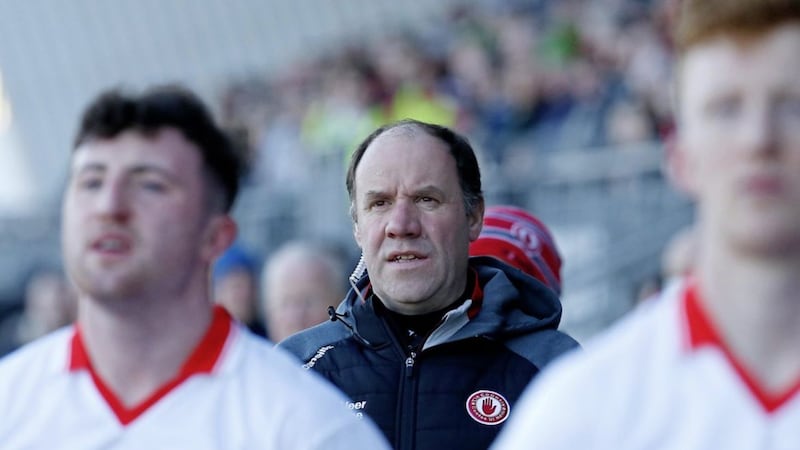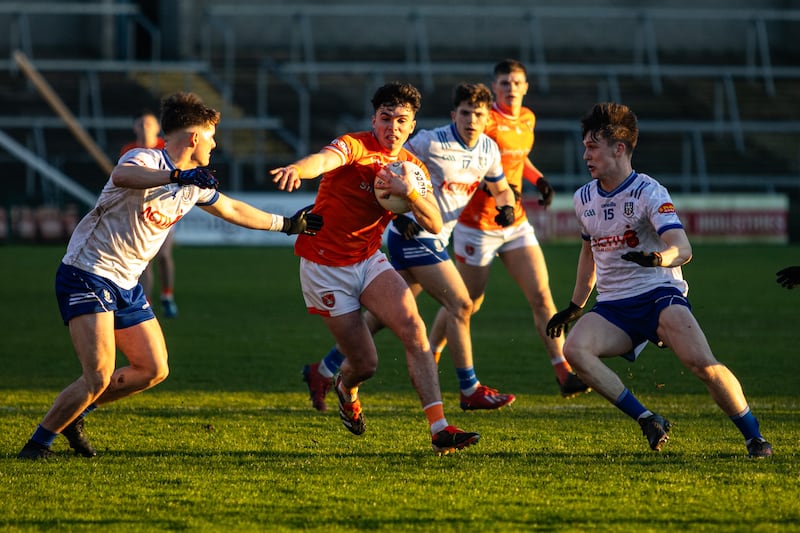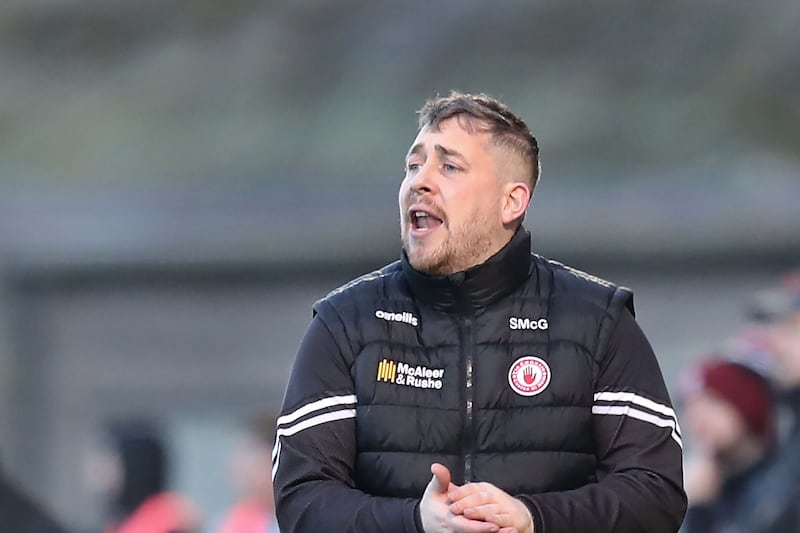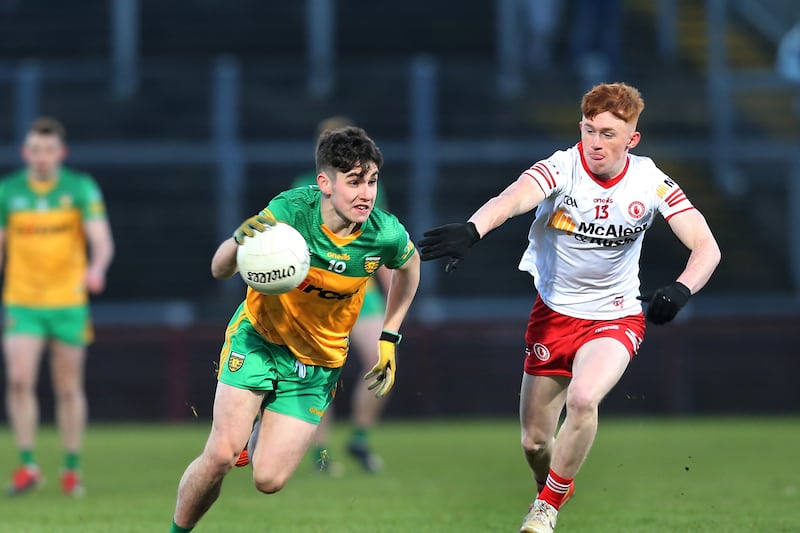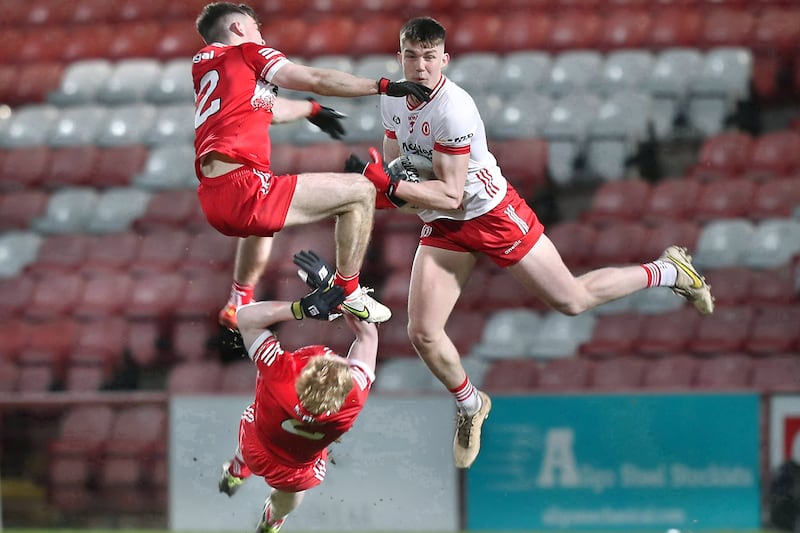THIS column's theme was in my head even before I came into the office yesterday – the first conversation with a colleague merely confirmed my thoughts.
This particular colleague rarely mentions the GAA – yes, such people exist, even within The Irish News towers – but he declared: "That was a dreadful game yesterday, so one-sided."
He was referring to Monday's All-Ireland Senior Football Championship quarter-final replay between Connacht champions Roscommon and Mayo, which the latter cruised by 4-19 to 0-9.
As he's a Manchester United fan, I usually disagree with him when we talk about association football and I didn't break that habit for a different code.
Even though he was right about the one-sided nature of the game, I replied: "No, I really enjoyed watching Mayo. They were brilliant."
That was my view too of Tyrone's thrashing of Armagh and Dublin's demolition of Monaghan in Saturday's quarter-finals.
I completely understand that those who support Armagh and Monaghan, and/ or dislike Tyrone and Dublin, wouldn't have enjoyed much of those matches.
However, if you are genuinely a neutral, or a fan of Gaelic football, I genuinely don't fathom why you wouldn't admire the way all the quarter-final winners played.
I couldn't give a fair assessment of Kerry's win over Galway, as I was half-watching it on TV, half-asleep, and my sense from that game was frustration at the Tribesmen spurning a series of goal chances. The Kingdom seemed to play within themselves, but there's no doubt that they are a very good team.
So are Dublin, Tyrone, and Mayo.
It's not their fault that other counties currently aren't close to the standards they are setting.
For years we were told that Kilkenny's dominance of hurling was wonderful, that the Cats were 'raising the bar', that it wasn't their fault that other counties weren't as good as them.
So why don't those entirely valid points appear to apply in football?
There are parallels with that aforementioned other football code.
It's just over a decade since former Real Madrid coach Jorge Valdano, writing in a Spanish newspaper column, penned a crude but memorable description of the 2007 Champions League semi-final clashes between Liverpool and Chelsea.
I was at Anfield for the second leg, and loved it as Liverpool won 1-0 on the night, to take the tie to 1-1 on aggregate, and reached the final after a penalty shoot-out.
I knew it wasn't free-flowing entertainment but it was a gripping game, and the result was right – in my biased eyes.
Valdano's view, as a neutral observer, was rather different to mine: "Football is made up of subjective feeling, of suggestion - and, in that, Anfield is unbeatable.
"Put a shit hanging from a stick in the middle of this passionate, crazy stadium and there are people who will tell you it's a work of art. It's not: it's a shit hanging from a stick."
The Argentinian continued: "Chelsea and Liverpool are the clearest, most exaggerated example of the way football is going: very intense, very collective, very tactical, very physical, and very direct."
That description could well be applied to the type of games that many – including my colleague – want to see.
Yet just because a game is intense and physical and – most importantly of all for some in their assessment of its entertainment value – close on the scoreboard, doesn't necessarily mean it's a great game.
It can be, but it ain't necessarily so.
Equally, just because a team wins a match by eight, 10, 18 or even 22 points, which were the winning margins in this year's quarter-finals (including Monday's quarter-final replay between Mayo and Roscommon) it doesn't rule out entertainment from those games.
The Tyrone-Armagh, Dublin-Monaghan, and Mayo-Roscommon matches were all effectively over at half-time, but the winners had all played some superb stuff.
I'm as happy to see that as I am to witness a tight but sh-, er, shoddy game.
The 'Super Eight' concept has been written off a full year before it has even begun.
Perhaps a 'Top Four', after 'traditional' quarter-finals, would be better.
That would preserve the importance of the provincial championships, as Dublin, Kerry, Mayo, and Tyrone would be determined to win their province in order to avoid each other at the All-Ireland quarter-final stage, so as not to risk missing out on a place in the 'Top Four'.
The fear that the 'Super Eights' will include dead rubbers is well-founded.
There is also the danger that there will be even more thrashings, with final positions in the groups potentially decided by scoring difference (after head-to-head records).
Remember what happened in the last round of McKenna Cup group matches this year, when Tyrone, Derry, and Fermanagh sealed their places in the semi-finals with wins by 23, 20, and 14 points respectively.
The solution, to get closer to the top four? It's not all about money – Sure, Mayo and Dublin were the top two spenders on their county teams last year, but Kerry were seventh, behind Roscommon (albeit with dual counties Cork, Galway, and Tipperary also ahead of them).
Tyrone were 25th on that money list, only Antrim and Fermanagh spending less than the Red Hands in Ulster.
Good coaching programmes and keeping players involved are major elements in achieving success, but both of those take time.
In the short term, the rest may have to 'mind the gap' as the Top Four pull clear like a runaway train – but they'll still be worth watching.

